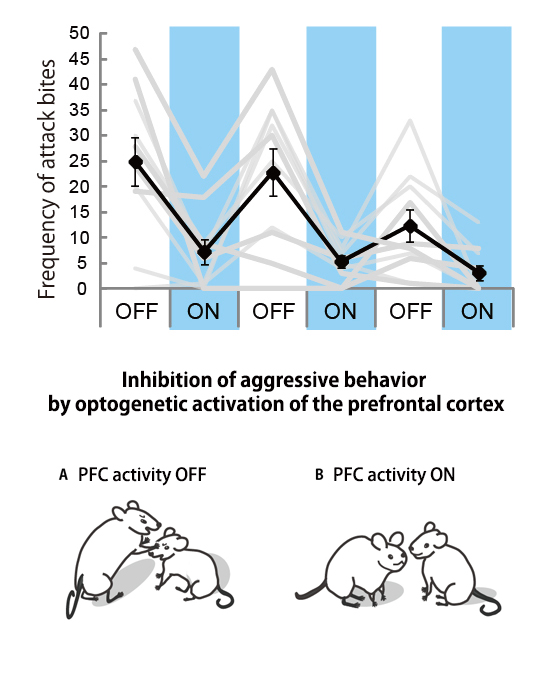The inhibitory role of the medial prefrontal cortex on aggressive behavior in male mice
Press release
Control of Intermale Aggression by Medial Prefrontal Cortex Activation in the Mouse.
Aki Takahashi, Kazuki Nagayasu, Naoya Nishitani, Shuji Kaneko, Tsuyoshi Koide PLOS ONE April 16, 2014 doi:10.1371/journal.pone.0094657The adaptive nature of aggressive behavior in social animals accounts for its observation throughout the animal kingdom. However, given that aggressive behavior is no longer adaptive when it exceeds the species-typical level, mechanisms should curb excessive aggression to keep it within the adaptive range. The prefrontal cortex has been implicated in the inhibitory control of emotional outbursts, including aggression and violence. In this study, we used optogenetics to demonstrate that temporal activation of excitatory neurons in the medial prefrontal cortex (mPFC), but not the orbitofrontal cortex (OFC), inhibits inter-male aggression in mice. Activation of the mPFC suppresses aggressive bursts and reduces the intensity of aggressive behavior, but does not change the duration of the aggressive bursts. Our findings suggest that mPFC activity inhibits the initiation and execution, but not the termination, of aggressive behavior, and maintains such behavior within the adaptive range.

Optogenetic activation of the mPFC reduced the frequency of attack bites.
ON: light stimulation (blue light, 20 Hz, 5 mW), OFF: no light stimulation, gray lines: attack bites in each individual, black line: mean values.















